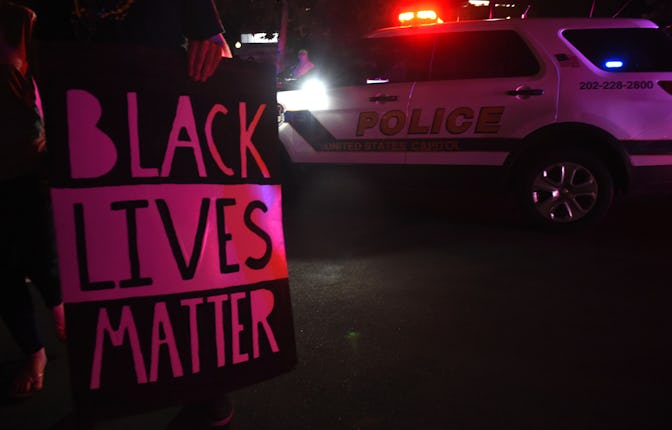Louisiana's Supreme Court is trying to kill protests once and for all
Organizers beware, you can now be held liable for other people's crimes.

In what will likely have a chilling effect on activists across the state, Louisiana’s State Supreme Court has ruled that protest organizers can be held personally liable for the actions of those who attend their event.
In a ruling published on Friday, six of the court’s seven justices agreed that an unnamed police officer injured during a 2016 protest in Baton Rouge has the legal grounds to pursue a suit against DeRay Mckesson, the Black Lives Matter movement notable who rose to national prominence during the 2014 uprising in Ferguson, MO.
“Because it is alleged that Mckesson, with knowledge that such protests could turn violent, staged a protest in direct contravention of law, thereby provoking the police to respond, a person can easily associate the injury to the police officer with the alleged conduct,” the court’s majority ruled, asserting that Mckesson’s role as a high profile instigator and amplifier for the 2016 protest — held in response to the police shooting of Alton Sterling, accused of badgering gas station customers while selling CDs — rendered him open to damages from the officer who’d been hurt. Put another way: simply by participating in the organizing of the protest, Mckesson is — and future organizers are — now in a position to be sued for the criminal actions of one of its participants.
The possibility that this precedent could further restrict and intimidate protesters seemed at the forefront of the court’s lone dissenting vote, Justice Piper Griffin, who noted in her dissent (emphasis mine):
It is beyond citation that political protest carries a high moral value in our society. It is also true that protests which turn violent may not only result in injuries to police and bystanders but also damage to businesses and property – deterring such outcomes is sound policy. However, the finding of a duty in this case will have a chilling effect on political protests in general as nothing prevents a bad actor from attending an otherwise peaceful protest and committing acts of violence. While in such instances the organizers of a protest may ultimately be cleared of liability by the trier of fact, the costs of defending a lawsuit at the pre-trial phase are significant. Courts would see increased litigation from all sides of the political spectrum and the flow of political speech could hinge on which viewpoints had patrons with deeper pockets.
Speaking with Bolts Magazine, Louisiana Democratic State Rep. Mandie Landry echoed Griffin’s concern, citing both the court’s decision and other legislative actions that would further criminalize protest behavior.
“There’s already plenty of laws that say you can’t hurt someone and that you can’t attack a police officer,” Landry said. “To keep adding on extra penalties, extra situations, seems like it’s just designed to chill behavior, to further scare people, and to broaden the net.”
The case had initially been submitted to the United States Supreme Court, which overwhelmingly declined to take it up, shunting the decision back down to the state in 2020. Only Justice Clarence Thomas dissented. At the time Mckesson predicted much of Landry and Griffin’s line of concern, saying in a statement that he “recognizes that holding me liable for organizing a protest because an unidentifiable person threw a rock raises First Amendment concerns.”
Now that the court has ruled on the legality of Mckesson’s role in the officer’s injury, that officer’s suit to hold him liable is now clear to proceed through the court system.